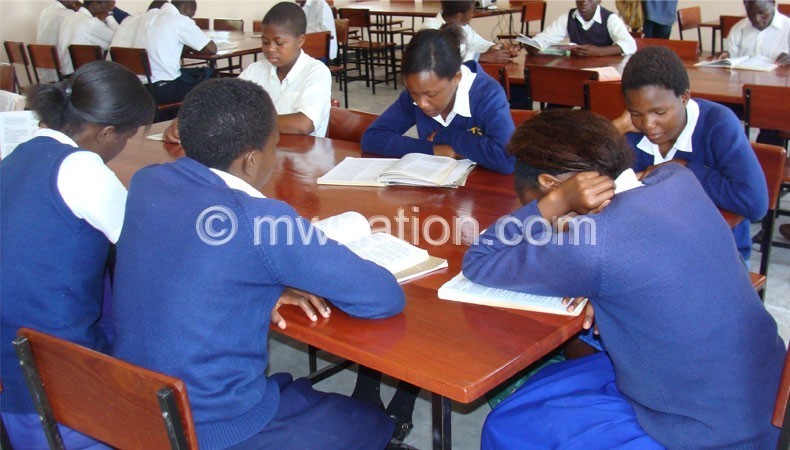Fighting against child marriages
Marieta, aged15, braves biting cold weather every morning, leaving the warmth of a tattered blanket and mat she shares with her husband, to fetch water for domestic chores at a borehole located some 10 kilometres away from her mad, grass-thatched house.
She sobs with grief all the way to and from the borehole, as she tries to balance a vividly heavy clay pot perched on her head, which nearly breaks her neck.
The girl, dressed in a rugged green primary school uniform, was forced to get married to a 65-year-old subsistence farmer by her father, as a way of compensating the money he borrowed for the construction of a chicken pen, when she was about to sit for standard eight examinations at Nyungwe Full Primary School.
If not forced into marriage by selfish motives of her father, Marietta wished she could further her education to become a toplawyer.

Child marriages among girls is common in Malawi, which has drastically led to numerous premature deaths among them, due to complications that come with inability of their tender bodies to support processes involved in child-bearing.
Possibly, this scenario could be one of those that prompted Centre Community and Youth Development (CCYD) to roll out ending child marriage project in Salima with financial assistance from Hivos Foundation.
CCYD Executive Director Weston Msowoya said the organisation conducted surveys in some districts of central region which revealed drastic child marriage cases, mainly affecting girls.
Msowoya said, the survey also revealed that most girls from lakeshore districts such as Mangochi, Nkhotakota, Salima, Karonga and Nkhata Bay are engaged in child marriages which he described as tear-jerking to the development of the country.
He disclosed that the research showed that 68 percent of young girls who are married in the area of Traditional Authority (T/A) Kuluunda in Salima district were forced into those marriages before the age of 18.
“During a regional symposium held in February 2014, T/A Kuluunda complained over serious cases of child marriages in her area.
“And when we conducted a survey, it was discovered that 64 percent of the girls were forced into marriages,” said Msowoya.
He said in an effort to mitigate problems that such young girls face, the institution with funding from Hivos Foundation launched a sensitisation campaign programme in the area under ‘ending child marriage project’.
According to Msowoya, several young girls were withdrawn from families and sent back to school, where the organization is paying their school fees. He added thatthe organisation provided some vocational skill trainings to young people who did not want to quit their families and go back to school.
“Currently, we have managed to provide vocational skills to 70 girls and 30 boys which we believe will help them sustain their lives and develop their families,” said Msowoya.
T/A Kuluunda said if cases of child marriages are not contained, the country will continue experiencing premature deaths which among other things are propelled by earl marriages.
Kuluunda added that for the country to progress, young people need to concentrate on education than marriages, which she said is pivotal towards social and economic development of any nation.
“I am sure that, the country cannot progress if young people are engaged in child marriages, than concentrating on education,” said Kuluunda.
Recently the country saw the enactment of the Marriage, Divorce and Family Relations Act that has shifted marriage age from 16 to 18. However, some social commentators have advised the government to quickly include the new marriage law in the constitution to facilitate its implementation.
Minister of Gender, Children, Disability, and Social Welfare Patricia Kaliati, recently told the media that government will do everything possible to ensure that the country’s girls are provided with all the opportunities to progress in life.
“As the government, we are determined to do everything possible to protect our girls, allow them remain in schools and progress in life,” said Kaliati.
Recently Democratic Progressive Party (DDP) administration developed a policy of constructing girls’ hostels in most community day secondary school across the country, as one way of motivating girls to remain in school to achieve their life goals.
While Minister of Health Jean Kalilani was reported in the media saying most of maternal deaths experienced in the country are a result of child marriages. She said with the current advocacy against child marriages the country is assured that cases of women dying due to complications while giving birth will be reduced.
“As the ministry responsible we commend NGOs that are tirelessly working at eliminating cases of child marriages in the country. We believe that through such initiatives cases of maternal deaths will drastically be reduced,” said Kalilani. n





